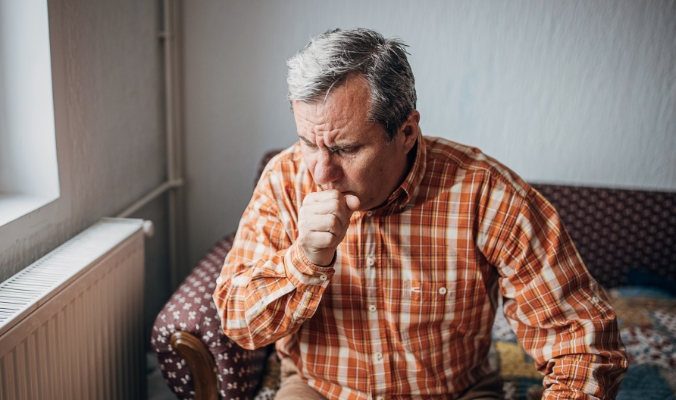
Why Quit?
Get Motivated to Stop Using Tobacco
No one but you can decide when and why it’s the right time to quit. But if you’re having a hard time making the decision or finding your motivation, our experts can help. No matter how long you’ve used tobacco, we can help you get inspired to start your quit now.
Tobacco Product Use Can Take Years Off Your Life
Using tobacco products can cause harm to your health and well-being that leaves you and your family suffering the consequences. In fact, tobacco use damages nearly every part of your body, from the lungs to the immune system, making it the leading cause of preventable death, taking an average of 10 years off your life.
Smoking Damages Blood Vessels and Raises Blood Pressure
Other Heart Diseases Caused and Worsened by Tobacco Use:
High Blood Pressure
Heart Attack
Coronary Heart Disease
Stroke
Aortic Aneurysm
People Who Smoke Are 12 to 13 Times More Likely to Die From COPD
Lung Illnesses Caused or Worsened by Tobacco Use:
Flu
Pneumonia
Bronchitis
Covid-19
Emphysema
COPD
Quitting Tobacco Reduces Your Risk of 12 Types of Cancer:
Should You Be Screened for Lung Cancer?
Yearly lung cancer screening with a low-dose CT scan is recommended for people who:- Have a 20 pack-year or more smoking history, and
- Smoke now or have quit within the past 15 years, and
- Are between 50 and 80 years old.
A pack-year is smoking an average of one pack of cigarettes per day for one year. For example, a person could have a 20 pack-year history by smoking one pack a day for 20 years or two packs a day for 10 years.

Health Improvements From Quitting
The good news? You don’t have to wait long to feel the health benefits of quitting tobacco. As soon as you start quitting, your body begins to recover from the damage caused by using tobacco. Over time, quitting lowers your risk for smoking related diseases and can add years onto your life. No matter how much or how long you’ve used tobacco, it’s never too late to quit.
2 Weeks
Circulation and lung function improves
1 Year
Risk of heart attack sharply falls
5 Years
Risk of some cancer goes down
15 Years
Risk of cancer is similar to that of a nonsmoker
Within Minutes
Blood pressure and heart rate lower almost immediately
1-12 Months
Coughing and shortness of breath decrease
3 Years
Chance of coronoary heart disease decreases by half
10 Years
Lung cancer rate drops by 50%
Quitting and
Mental Health
There are many misconceptions about smoking and the impact it has on mental health. The fact is, even though quitting can be stressful, continuing to smoke can make mental health symptoms worse.
Smoking increases feelings related to stress
Quitting reduces stress over time
When you first start to quit, it may be tough to get past the stress of cravings and withdrawal. But in the long run, if you continue to stay quit, symptoms of stress have been shown to significantly improve.
Smoking can worsen symptoms related to anxiety and depression
Quitting can ease symptoms of anxiety and depression
Quitting tobacco is hard, and if you have conditions like anxiety or depression, you may face even more obstacles in quitting. But it’s not impossible. Find out how our free quit support helps.
Smoking can impact the effectiveness of certain medications that you may use to manage your mental health symptoms.
Protecting Loved Ones
For people who use tobacco, quitting can be one of the hardest things they ever do. But getting through it can make a huge difference for everyone in your life. When you’re healthier, there’s a better chance you will be around for loved ones long-term, without the complications of smoking holding you back.
Plus, quitting tobacco helps protect those closest to you too. That’s because even if you smoke in another room, in a stairwell, or with a window open, secondhand smoke can still spread. Exposure for even a short period of time has many of the same side effects on nonsmokers as smokers themselves may experience. Secondhand smoke exposure is more hazardous for babies and children because they are still growing.


Secondhand smoke side effects include cancer, stroke, and heart disease.

Babies exposed to secondhand smoke are at an increased risk of sudden infant death syndrome (SIDS) and damage to the developing body and brain.

Young children exposed to secondhand smoke get sick more often with pneumonia, ear infections, and bronchitis.
The Cost of Tobacco Adds Up
Beyond the physical, mental, and emotional impacts of tobacco use is the financial drain. In Illinois, people who smoke spend an average of $4,000 a year. That’s money you could be saving for necessities like bills and groceries, or even a vacation.
